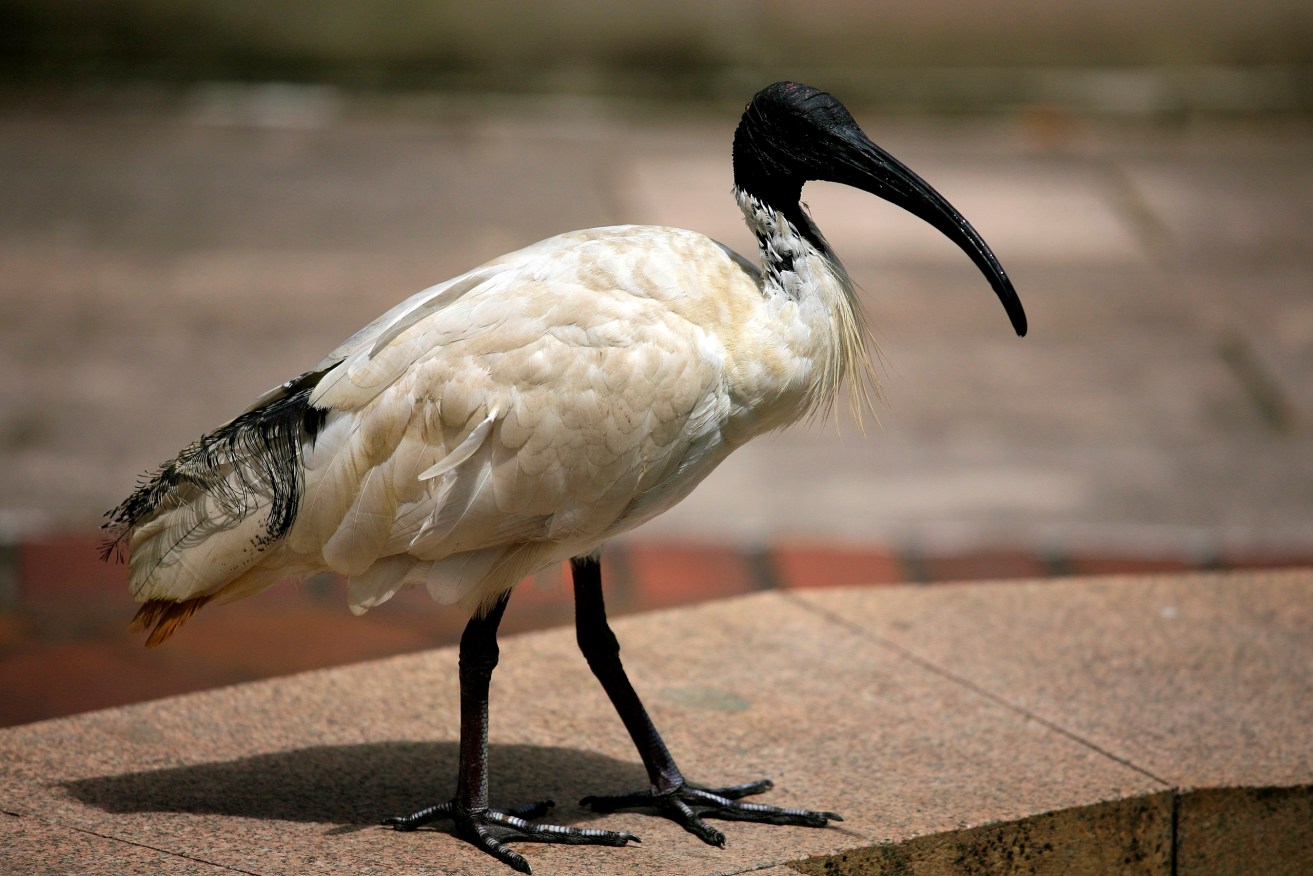Secret life of the bin chicken: Filthy, ugly but perhaps just misunderstood
With filthy feathers, bent beaks and beady black eyes, the ibis is best known as “bin chicken” in the Australian bird world.

Smelly, noisy and messy – these feathered fiends stalk through the streets of cities and towns on a mission as they fossick for food scraps.
But does the bin chicken deserve its grubby reputation for refuse?
A research project in Moreton Bay is trying to understand how these “bin chickens” breed, feed and move around urban areas – and if rubbish tips are the key to their survival.
Researchers from the University of the Sunshine Coast are teaming up with the Moreton Bay Regional Council to capture and tag up to 500 birds.
Residents and visitors are asked to play their part by reporting sightings of ibis fitted with bright pink or blue tags via a free citizen science app Big City Birds.
“The Australian white ibis is a common species across cities and towns all over Australia, with dense numbers occupying urban centres. However, almost nothing is known about how it is affected by different environmental variables,” researcher Dr Dominique Potvin said.
During the next year, the research team will visit more than 30 documented regional breeding sites once every two months to collect observational survey data, including the number of nests, eggs, juveniles and adults at each location.
The team will study what affects ibis colony size, genetic diversity, bloodlines and the general health of the birds.
“Breeding and feeding sites for Australian white ibis occur within densely populated human centres, creating or magnifying potential conflict between the birds and the community due to their colony noise, smell and the damage that they cause to local vegetation,” Potvin said.
“Are Australian white ibis in the Moreton Bay region residential or mitigatory, and what are the population demographics and meta-population dynamics?
“Do the birds breed in the same locations year after year, what is the reproductive rate at different sites and are rubbish tips really are the key to their survival in the urban landscape.”
Moreton Bay Regional Council Mayor Peter Flannery said the research would help manage ibis numbers in urban areas and learn more about how they have adapted so well to their changing environment.












